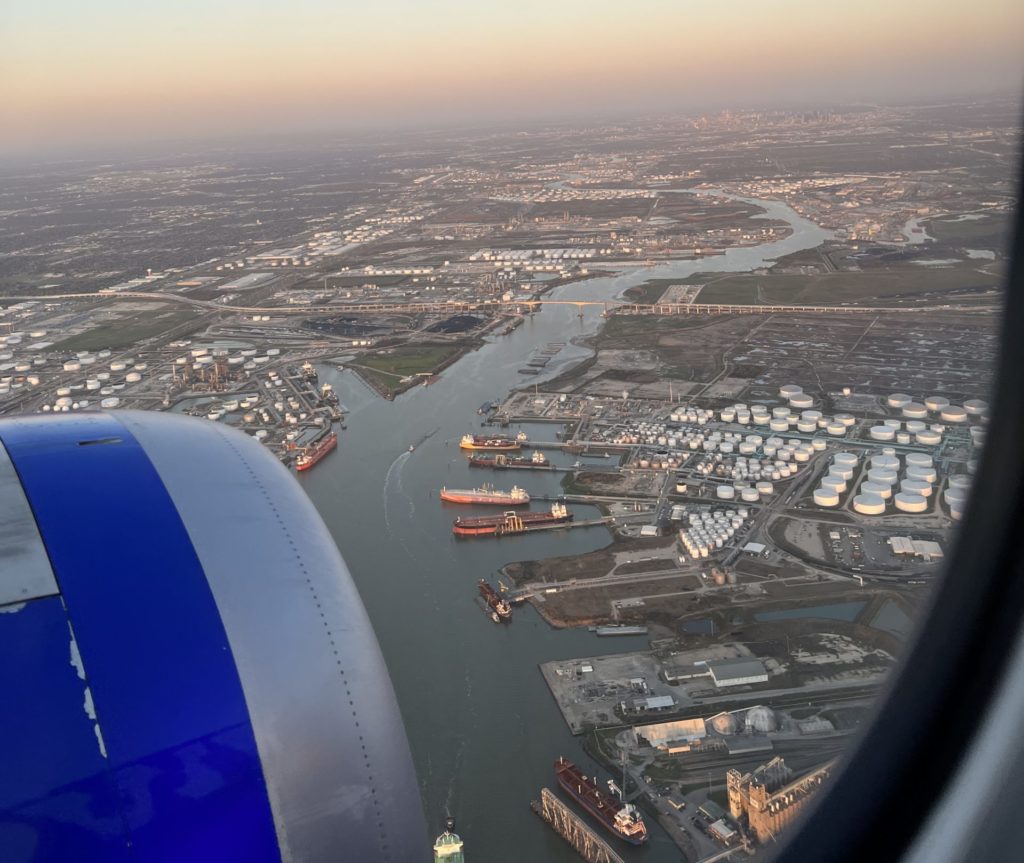
A Houston federal jury found Friday that French agricultural merchant Louis Dreyfus Co. breached a contract with the Port of Houston Authority when it returned a damaged grain elevator and other equipment it had leased to handle its Houston-based exports.
In its verdict, the jury also awarded the Port Authority $22.3 million in damages. The Port Authority’s lead lawyer, Todd Mensing of the AZA firm, said $1.5 million of the verdict accounts for repairing damages to railroad tracks that Louis Dreyfus had also leased and the rest accounts for repairs and improvements to the grain elevator.
The unanimous verdict came Friday afternoon after a four-day trial in U.S. District Judge Lynn Hughes’s courtroom.
The government-owned Port of Houston is the largest port on the Gulf Coast and in Texas. It owns and operates the Houston Ship Channel and is a major player in nationwide and worldwide commerce. According to its website, the Port of Houston has created 1.35 million jobs in Texas and 3.2 million jobs nationwide and accounts for 20 percent ($339 billion) of Texas’ GDP. The Port Authority maintains the waterway and owns and leases various assets and infrastructure along the waterway.
“When a community trusts a corporation to do the right thing, the community needs to stand up when that doesn’t happen,” Mensing told The Texas Lawbook. “The Port of Houston is a pillar for local commerce, so it was important for them to stand up to a corporation that was breaking its promises.”
Nebraska lawyer Bill Hargens of Orgain Bell & Tucker, lead counsel for Louis Dreyfus, did not return a message seeking comment late Friday.
According to court documents, the Port Authority and Louis Dreyfus entered into a 10-year agreement in 2008 in which Louis Dreyfus leased export facilities, including a grain elevator and the surrounding 20-acre tract equipped with Port Authority machinery, railroad facilities and other industrial equipment.
About a year before the lease expired, “changing business objectives” led Louis Dreyfus to decide against renewing its lease and abandon its Houston export operation, the Port Authority’s lawsuits says.
The lease agreement required Louis Dreyfus to pay for repairs, maintenance and capital expenditures and to leave the leased premises in satisfactory condition.
The Port Authority argued at trial that Louis Dreyfus left the leased premises in dire condition. Mensing said the most significant repairs that were needed involved the shipping towers, replacement of the grain conveyor systems and work to the grain elevator’s dust control system — the latter of which is especially significant because explosions can occur if too much dust builds up since excessive dust can ignite like gun powder.
“The jury was particularly attentive in this case because this is not just about construction defects and dry technical questions; all of these questions ultimately implicate safety,” Mensing said.
Mensing said Louis Dreyfus’s main argument at trial was that the equipment and facilities were still safe and operable when the new tenant took over.
“Our response to that was we trusted them to do more than just keep it running,” he said.
Key moments of the trial included when the Port Authority’s legal team showed the jury a picture of the damage and when some of Louis Dreyfus’s witnesses on cross-examination conceded the company should have done repairs but chose not to.
“A picture will say a thousand words, and as much as Louie Dreyfus wanted to explain away the real-time evidence of the condition, they couldn’t,” Mensing said.
In addition to Mensing, the AZA trial team representing the Port Authority included associates Kelsi Stayart White, Sammy Ford IV, Michael Killingsworth and Thomas Frashier.
Louis Dreyfus’s local counsel included Christopher McKinney and Thuha Nguyen of Orgain Bell’s Houston office.
